Master’s Degree in Teaching Methodologies

An expert and professional approach to the dynamic pedagogical paradigm of the 21st century
Our society is constantly being reinvented and needs to adapt the models and paradigms by which it is governed. The education sector, a fundamental entity for society, has undergone various changes, both in the behavior of the students and in the training process itself, influenced by digital transformation.
This master's degree was designed with a clear focus, for all types of teachers and education professionals, who practice in any type of modality (face-to-face and distance learning) and educational setting (formal and compulsory, Secondary, Baccalaureate and Vocational Professional or Higher Education).
On the other hand, it offers the possibility of learning and experiencing the keys to the most current and innovative teaching methodologies and strategies, through projects, seminars, flipped classrooms, practical scenarios and gamification, among others. In addition, it encourages the development of digital and media competences of teachers in the European Space (DigComEdu) and of their educational leadership based on methodological design.
This master's degree was designed with a clear approach, for all types of teachers and education professionals, who practice in any type of modalities (face-to-face and distance learning) and educational settings (Secondary Education, Baccalaureate and Vocational Training or Higher Education). This is a program that has a substantial innovative methodological-didactic nature, aimed at improving and reinventing the methodologies, strategies, dynamics and habitual practices of teachers of the 21st century.
Graduate profile: The graduate's profile will embody that of an educator well-versed in contemporary methodological approaches, possessing a digital-savvy and technologically mediated professional acumen. They will excel in crafting educational settings conducive to teaching across various modalities and training environments. Moreover, they will adeptly curate resources, employ strategies, and utilize methods tailored to foster academic success among their students.
Official Degree:Master’s Degree in Teaching Methodologies
Center responsible:School of Language and Education
Branch of knowledge: Social and Legal Sciences
Openings available: 250
- Classroom attendance: 50
- Online: 200
Total Credits 60 ECTS credits.
Minimum of 12 ECTS credits and maximum of 60 ECTS credits per enrollment and academic period.
Academic year it was implemented: 2020/2021
Duration: 1 year. From october to june
Type of Education: Classroom attendance / Online
Academic Regulations: General student’s regulations. Credit transfer and recognition. Regulation of student participation. Common procedures for carrying out the Final Research Project
University Services: [+info]
Internal Quality Assurance System System managers Incidents, Suggestions and Complaints Job placement report and assessment of training received
Theoretical-practical program to specialize in digital pedagogy, mediated teaching and Educommunication
Curriculum
All our degrees and curricula have been prepared in accordance with the new guidelines set by current legislation, having already been verified by the National Agency for Quality Assessment.
The student must take 60 credits
Area 130 ECTS
FIRST SEMESTER- Teaching methodologies in the 21st century
- 6 ECTS | Methodological keys
- 4 ECTS | Strategies and methodological resources for teaching staff
- 4 ECTS | New roles, environments and modalities of Education in the 21st century
- 6 ECTS | Digital teaching competences and Educational Leadership
- 4 ECTS | Digital and Media Pedagogy
- 6 ECTS | Evaluation of teaching methodologies
Area 218 ECTS
SECOND SEMESTER- Innovative teaching methodologies
- 4 ECTS | Teacher-based and content-based methodologies
- 4 ECTS | Practice-based and student-based methodologies
- 4 ECTS | Methodologies based on gamification and investment of education
- 6 ECTS | Design of hybrid methodological models
Area 36 ECTS
SECOND SEMESTER- Practical experience
- 6 ECTS | Professional internship
Area 46 ECTS
SECOND SEMESTER- Trabajo de Fin de Máster
- 6 ECTS | Final Research Project
Information of the Subjects
Professors
| Profesores Professors | Porcentaje de Doctores Percentage of PhD holders |
| 40 | 87,5% |
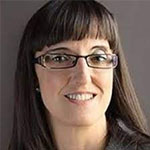 Susana Martín Leralta
Decana de la Facultad
Dean of the Faculty
Susana Martín Leralta
Decana de la Facultad
Dean of the Faculty
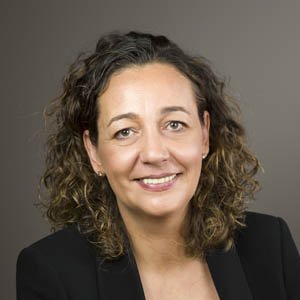 Nuria Camuñas Paulete
Directora del Departamento de Educación
Director of the Department of Education
Nuria Camuñas Paulete
Directora del Departamento de Educación
Director of the Department of Education
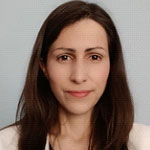 Victoria Eugenia Lamas Álvarez
Directora del Máster en Metodologías Docentes
Director of the Master’s Degree in Teaching Methodologies
Victoria Eugenia Lamas Álvarez
Directora del Máster en Metodologías Docentes
Director of the Master’s Degree in Teaching Methodologies
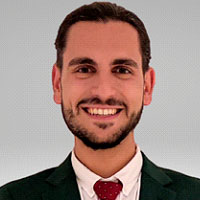 Pedro Antonio García-Tudela
Coordinador del Máster en Metodologías Docentes
Coordinator of the Master’s Degree in Teaching Methodologies
Pedro Antonio García-Tudela
Coordinador del Máster en Metodologías Docentes
Coordinator of the Master’s Degree in Teaching Methodologies
 Francisco Javier Benítez Verguizas
Profesor
Professor
Francisco Javier Benítez Verguizas
Profesor
Professor
 Guillermo Buedo Company
Profesor
Professor
Guillermo Buedo Company
Profesor
Professor
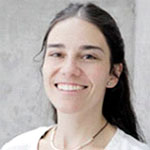 Paula Constanza Contesse Carvacho
Profesora
Professor
Paula Constanza Contesse Carvacho
Profesora
Professor
 Sergio Edú
Profesor
Professor
Sergio Edú
Profesor
Professor
 María Pilar Ester Mariñoso
Profesora
Professor
María Pilar Ester Mariñoso
Profesora
Professor
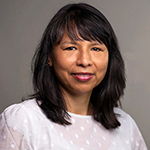 Sulma Farfán Sossa
Profesora
Professor
Sulma Farfán Sossa
Profesora
Professor
 Marcos Garasa
Profesor
Professor
Marcos Garasa
Profesor
Professor
 Felipe García Gaitero
Profesor
Professor
Felipe García Gaitero
Profesor
Professor
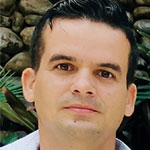 Alién García Hernández
Profesor
Professor
Alién García Hernández
Profesor
Professor
 Sandra García Martín
Profesora
Professor
Sandra García Martín
Profesora
Professor
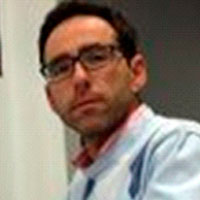 Juan Carlos Gil González
Profesor
Professor
Juan Carlos Gil González
Profesor
Professor
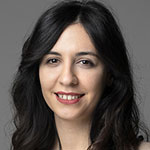 Patricia González Collado
Profesora
Professor
Patricia González Collado
Profesora
Professor
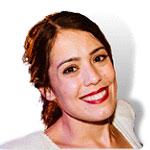 Macarena M. González Gómez
Profesora
Professor
Macarena M. González Gómez
Profesora
Professor
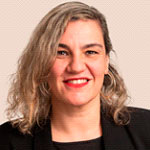 Paola Guimeráns Sánchez
Profesora
Professor
Paola Guimeráns Sánchez
Profesora
Professor
 Ángel C. Herrero Lastra
Profesor
Professor
Ángel C. Herrero Lastra
Profesor
Professor
 Beatriz Juárez Escribano
Profesora
Professor
Beatriz Juárez Escribano
Profesora
Professor
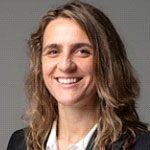 María Cruz Lachica González
Profesora
Professor
María Cruz Lachica González
Profesora
Professor
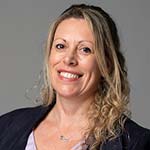 Claudia Liliana Gandía
Profesora
Professor
Claudia Liliana Gandía
Profesora
Professor
 Eva Llergo Ojalvo
Profesora
Professor
Eva Llergo Ojalvo
Profesora
Professor
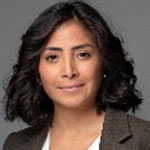 Montserrat Magro Gutierrez
Profesora
Professor
Montserrat Magro Gutierrez
Profesora
Professor
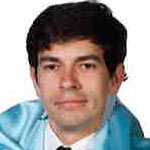 David Méndez Coca
Profesor
Professor
David Méndez Coca
Profesor
Professor
 Mónica Méndez de la Calle
Profesora
Professor
Mónica Méndez de la Calle
Profesora
Professor
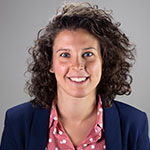 Inmaculada Pedraza Navarro
Profesora
Professor
Inmaculada Pedraza Navarro
Profesora
Professor
 Manuela Pedregal Valle
Profesora
Professor
Manuela Pedregal Valle
Profesora
Professor
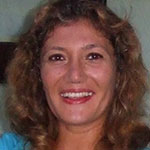 Verónica Pensosi
Profesora
Professor
Verónica Pensosi
Profesora
Professor
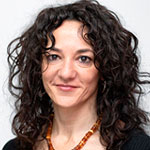 María Paz Peña García
Profesora
Professor
María Paz Peña García
Profesora
Professor
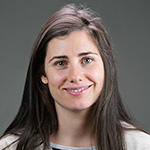 Claudia Poch Pérez-Botija
Profesora
Professor
Claudia Poch Pérez-Botija
Profesora
Professor
 Teresa Rossignoli Palomeque
Profesora
Professor
Teresa Rossignoli Palomeque
Profesora
Professor
 Miguel Ángel Ruiz Domínguez
Profesor
Professor
Miguel Ángel Ruiz Domínguez
Profesor
Professor
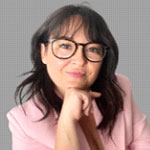 María del Pilar Salvá Soria
Profesora
Professor
María del Pilar Salvá Soria
Profesora
Professor
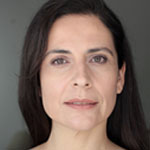 Saida Santana
Profesora
Professor
Saida Santana
Profesora
Professor
 Uriel Seguí
Profesor
Professor
Uriel Seguí
Profesor
Professor
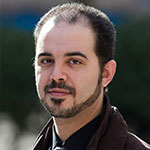 José Mª Suárez Díez
Profesor
Professor
José Mª Suárez Díez
Profesor
Professor
 Cristina Villalonga
Profesora
Professor
Cristina Villalonga
Profesora
Professor
More Academic Information
Competences
Basic CompetencesIn accordance with Royal Decree 43/2015 and Royal Decree 861/2010, which modifies Royal Decree 1393/2007, of October 29, which establishes the organization of official university education, as well as the Royal Decree 1027/2011, which establishes the Spanish Qualifications Framework for Higher Education (MECES), Master's degrees must guarantee the acquisition of the following basic competences:
- BC6 Possess and understand knowledge that provides a basis or opportunity to be original in the development and/or application of ideas, often in a research context.
- BC7 Students know how to apply the knowledge acquired and their ability to solve problems in new or unfamiliar environments within broader (or multidisciplinary) contexts related to their area of study.
- BC8 Students are able to integrate knowledge and face the complexity of formulating judgments based on information that, even if incomplete or limited, includes reflections on social and ethical responsibilities linked to the application of their knowledge and judgments.
- BC9 Students know how to communicate their conclusions and the knowledge and ultimate reasons that support them to specialized and non-specialized audiences in a clear and unambiguous way.
- BC10 Students possess the learning skills that allow them to continue studying in a way that will be largely self-directed or autonomous.
- GC1 Apply the knowledge acquired on methodologies of the 21st-century teaching paradigm to the different modalities and environments of education, contexts and modalities of the teacher's habitual practice.
- GC2 Identify and understand the theories, models, pedagogical roles and teaching methodologies through the prism of digital, liquid and mediated pedagogy.
- GC3 Understand and apply the Teacher's Digital Competences Framework to practice and promote, through them, their pedagogical leadership and the updating of their professional profile.
- GC4 Know the new digital environments and the mediated and virtual training modalities in which the practical teaching methodologies of the 21st century are developed, new current methodological paradigm.
- GC5 Select and use teaching methodological resources based on TAC (Learning and Knowledge Technologies), aimed at improving training and teaching-learning processes.
- GC6 Understand educommunicative practices and apply them to the design and implementation of mediated teaching methodologies and strategies.
- GC7 Select the most appropriate methodologies, through grounded approaches, and adapt them according to their purpose, recipients and training context.
- GC8. Know the evaluation process in the methodological design and use different types of competence evaluation, based on mediated resources and instruments. Understand and use different types of evaluation in teaching methodologies, based on resources and instruments mediated and adapted to the competencies model, which allows making professional and pertinent value judgments.
- GC9 Apply the theory the methodological keys to the design of hybrid models, based on the micro (subject or topic) and macro (institution) perspectives, supported by cooperative, mediated and interactive strategies.
- GC10 Design and apply teaching methodologies and strategies based on investment and gamification of education and training processes in mediated contexts.
- GC11 Create, organize and manage good teaching practices based on innovative methodologies and strategies, guided by TAC (Learning and Knowledge Technologies) and based on virtual environments and platforms.
- SC1 Analyze and assess the main characteristics of the mediated teaching methodologies, strategies and resources and their influence on one's professional profile, on the conception of the didactic act and on the organization of the different educational modalities.
- SC2 Identify the main characteristics of the new role of the teacher and the student in the 21st century, of the digital and mediated teaching methodological paradigm, and of the TACs, and understand their implications in the educational process.
- SC3 Understand and apply educommunicative practices, as well as the precepts of digital and liquid pedagogy, to the methodological design, organization and habitual teaching practices, as a form of leadership and redefinition of one's own professional teaching profile.
- SC4 Know and interpret the main elements of the evaluation of the different teaching methodologies and strategies, in particular of rubrics, e-rubrics and other innovative forms of evaluation, to integrate them into the teacher's methodological design process.
- SC5 Analyze and understand experiences of good teaching methodological practices, based on the TACs (Learning and Knowledge Technologies) and on the mediated contexts, which may be applicable to other modalities and environments.
- SC6 Use teaching methodologies that facilitate the acquisition of students' digital skills and their empowerment through them. Apply pedagogical practices that facilitate the acquisition of digital and media skills, and dynamics that allow the exercise of pedagogical leadership in the classroom.
- SC7 Understand and discern, at an advanced level, between the different teaching methodologies and strategies, and use the appropriate mediated pedagogical resources for each methodological purpose.
- SC8 Adapt traditional teaching methodologies to the new characteristics of the student and of digital and mediated education, through gamification, investment of learning and the redefinition of active and participatory teaching.
- SC9 Analyze and evaluate the educational implications of teaching environments and digital and mediated resources in the design of teaching methodologies. Evaluate in a well-founded and critical way the educational, communicative and technological implications and consequences of the mediated pedagogical environments and resources, the apps and the social media, typical of the teaching methodological paradigm of the 21st century.
- SC10 Understand the keys that allow the design of hybrid models that combine different teaching methodologies and strategies that can be used in different contexts, stages and training modalities.
- SC11 Design proposals for innovative and mediated teaching methodologies, according to the characteristics and diversity of the students, and adaptable to the two modalities: face-to-face and online.
- SC12 Observe experiences of good teaching practices in real contexts, which allows for the identification and analysis of innovative and differential methodological elements, which provide them with higher quality.
- SC13 Incorporate the knowledge, resources, strategies and competences acquired in the Master's Degree in Teaching Methodologies, to the development of an educational innovation or research work (FRP), directly related to some of the subjects or topics, and defend it publicly before a public tribunal.
Online Study
Admission
Admission profile
Individuals interested in pursuing the Master's degree in Teaching Methodologies at Antonio de Nebrija University must fulfill the requirements outlined by current legislation. The entry profile necessitates candidates to hold a university degree or its equivalent (such as undergraduate or associate degrees) in Teaching, Pedagogy, Psychology (with a specialization in education), or Psychopedagogy.
Moreover, due to the interdisciplinary nature of the program, individuals who have completed the Master's Degree in Teacher Training for Compulsory Secondary Education and Baccalaureate, Vocational Training and Language Teaching, or possess the Certificate of Pedagogical Aptitude (CAP), as well as practicing teachers and university doctors, are eligible to apply for the Master's Degree.
For university graduates outside the field of education or graduates of the Master's Degree in Teacher Training, Antonio de Nebrija University will provide and require additional training components to ensure that all students entering this program possess the necessary foundational knowledge.
The profile will be that of an educator who, equipped with an understanding of the latest methodological approaches and possessing a digital-proficient profile, can foster educational environments conducive to teaching across various modalities and learning contexts. Additionally, they will skillfully select the most appropriate resources, strategies, and methods to ensure the academic success of their students.
As per the provisions outlined in Article 18 of RD 822/2021 and RD 861/2010, students meeting any of the following criteria may gain access to Master's studies:
- Possession of an official Spanish university degree or a degree issued by a higher education institution in the European Higher Education Area. This degree must authorize access to Master's degrees in the country where it was awarded and must align with the entry profile established for the specific degree program.
- Graduates from educational systems outside the European Higher Education Area may access Master's programs without requiring the homologation of their degrees. However, the University will verify that these graduates demonstrate a level of training equivalent to the corresponding official Spanish university degrees. Additionally, their degrees must entitle them, in the country where they were awarded, to access postgraduate education. It is important to note that admission through this pathway does not imply the homologation or recognition of the previous degree for purposes other than pursuing Master's degrees. In cases where the homologation of any degree, diploma, or study obtained abroad is necessary for University admission, Antonio de Nebrija University may conditionally admit students who provide evidence that they have applied for the necessary approval while the approval procedure is being resolved.
- For students with special educational needs arising from disabilities, the University will evaluate the necessity for possible curricular adaptations, itineraries, or alternative studies.
In addition to meeting the requirements of current legislation, the entry profile for the Master's Degree in Teaching Methodologies at Antonio de Nebrija University must be considered. Applicants eligible for this program include those who possess an associate's, bachelor's or undergraduate degree, or a Master's degree in Teaching, Pedagogy, Psychology (with a mention or specialty in education), or Psychopedagogy. Furthermore, due to the interdisciplinary nature of the program, students who have completed the Master's Degree in Teacher Training for Compulsory Secondary Education and Baccalaureate, Vocational Training and Language Teaching, or those in possession of the Certificate of Pedagogical Aptitude (CAP), as well as practicing teachers and university sector doctors, are also eligible to apply.
For university graduates who are not from the field of education or those who have not completed the Master's Degree in Teacher Training, Antonio de Nebrija University will provide and require supplementary training to ensure all students entering the master's program have the necessary foundational knowledge.
In general, the admission documentation will be submitted to the Admissions Department.
The student must provide the originals or certified copies of the submitted documentation, within a period established by the University, in order to formalize his/her enrollment. Any inaccuracy, falsity or omission of information, statement or document provided by the student in the admission period will entail the impossibility of continuing to exercise the right from the moment the University has proof of these events, and proceed to cancel the application for admission submitted and the place awarded, notwithstanding any criminal, civil or administrative responsibilities that may arise.
In order to access the official master's degrees, it is necessary to submit the following documentation:
- Completed admission application.
- Identification document (D.N.I) or valid passport.
- 1 passport-size photograph.
- Academic transcript with the grades that grant access to the Master's degree.
- Certified photocopy of official Spanish university diploma or receipt of having requested it.
- Registration in social security or employment contract for the profile of university PhD professors.
Foreign students:
- Certified photocopy of official diploma issued by a foreign higher education institution belonging to the European Higher Education Area (EHEA) that grants access, in the issuing country, to official master's degree studies.
- Certified photocopy of official diploma issued in a foreign educational system not belonging to the EHEA. In this case, access will be conditioned by the verification that the studies completed correspond to a level of studies equivalent to that of the official Spanish university degrees and that they grant access to the official master's degrees in the country in which the diploma was issued. This procedure does not imply, in any case, the homologation of the previous degree, nor its recognition for any purpose other than to access the master's studies.
- If necessary, a letter issued by the University in which the student has completed the degree that grants access to Master's studies in the country issuing the diploma.
- Registration in social security or employment contract for the profile of university PhD professors.
In the event that the studies with which the pre-registration for the Master's degree is accessed are completed in a Foreign Higher Education institution, both the diploma and the academic record (grades) must be official and issued by the competent authorities, in accordance with the legal system of the country of origin.
If the number of applicants exceeds the available places, the student's academic record (grade average) will be used as the admission criterion. Therefore, anyone interested in the Master's Degree in Teaching Methodologies must submit their academic record, as the grade average will determine their admission if the number of applications exceeds the available places. Once the places are filled, additional applicants will be placed on a waiting list for any vacancies that may arise before the start of the course, following the admission and selection criteria detailed in point 4 for all other applicants.
Once admitted, the student will proceed to enrollment, which consists of the following phases: Place Reservation: Candidates must reserve a place. This pre-enrollment fee guarantees the candidate's spot at the University. These annual enrollment fees are non-refundable, except for students who are conditionally admitted, do not meet the legal access requirements, or have a justifiable medical situation.
Enrollment
Pre-enrolled candidates who wish to formalize their academic enrollment at the University must follow these steps:
- Submit Documentation: Provide proof that they meet the requirements established by Spanish university legislation for admission to the Master's Degree.
- Formalization of the Online Enrollment Process: The self-enrollment service on the Nebrija website allows admitted students to complete all academic, economic, and administrative procedures within the established deadlines. Along with their admission letter, they will receive the access code and personal password necessary for self-enrollment. Once self-enrollment is completed, the candidate acquires the status of a student at Nebrija University.
- Payment of Enrollment for the academic year according to the chosen payment plan.
In addition to evaluating the academic merits provided by the candidate (which will account for 60% of the admission process), students must complete a personal interview (30%). This interview, conducted by the program director, coordinator, or university advisors, aims to verify the candidate's suitability and alignment with the degree program. It assesses whether the candidate possesses sufficient motivation, training, knowledge, abilities, aptitudes, communication skills, extracurricular activities, and future interests necessary for admission to the postgraduate courses at Nebrija University. Additionally, candidates must submit a presentation document (10%) prepared personally, explaining their motivation and interests in the chosen studies, as well as any other relevant personal circumstances for the selection process.
Non-Spanish-speaking foreign students must take a Spanish language level test to assess their proficiency. However, candidates are exempt from this test if they provide certification of Spanish language knowledge at level B2 of the CEFR. The level accreditation will be validated through official titles accepted by the ACLES and/or Instituto Cervantes certificate validation table.
Employability
Career Opportunities
The Master's Degree in Teaching Methodologies allows the completion of pedagogical and didactic training for graduates of the Master's Degree in Teacher Training, providing a differential milestone in the curriculum vitae, either to compete for tenure in the public sector -with the corresponding score as an official master's degree with 60 ECTS credits-, or to teach in a professional way in the State-assisted and private sector, at a time when 3.0 teachers are increasingly needed, professors who are trained, experienced and competent in innovative teaching methodologies and strategies, as well as in settings, both face-to-face and virtual, for the exercise and professional development of teaching in the 21st century.
More information on Internships in CompaniesTestimonials
University Life in Teaching Methodologies
Visit all the Activities of the School of Language and Education
Let's Talk About Education
Second chapter of the video podcast specialized in Education where emotions in the classroom are discussed and how they affect language learning.
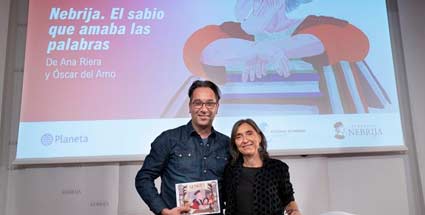
Nebrija, the wise man who loved words
Presentation of the illustrated book on Antonio de Nebrija aimed at children between 8 and 11 years of age. A graphic and educational approach to the life of the father of Spanish grammar. See article

How social networks influence adolescents
Article published by Mónica Moreno, a professor at Nebrija University, on the influence of social networks on students and their direct influence on the learning process.
See article



